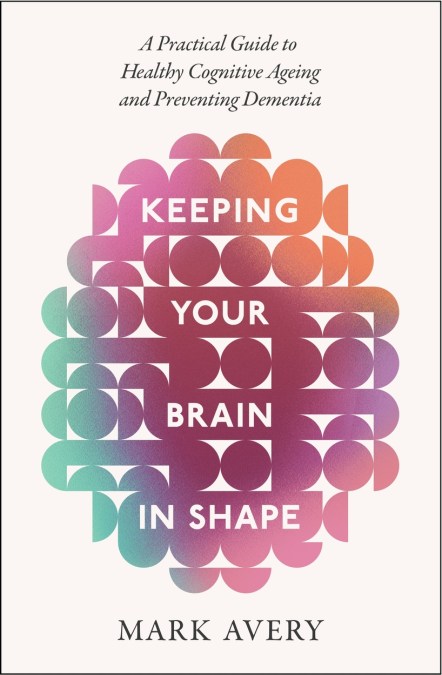Keeping Your Brain in Shape
On sale
7th August 2025
Price: £16.99
Genre
Accident & Emergency Nursing / Alcoholic Beverages / Alzheimer’s & Dementia / Cognition & Cognitive Psychology / Cognitive Science / Coping With Old Age / Fitness & Diet / Genetics (non-medical) / Impact Of Science & Technology On Society / Maturation & Ageing / Memory Improvement & Thinking Techniques / Non-alcoholic Beverages / Psychology Of Ageing
Are you worried about signs of dementia in yourself or a loved one? How can you tell what is abnormal cognitive decline and what is a typical feature of getting older? What steps can you take to keep your brain in shape for longer?
The good news is that there is a lot of detailed and rigorous scientific research to answer these questions. The bad news is that there is so much of this that it is a daunting and bewildering process to make sense of it. You would soon become lost in a complex world of scholarly articles where the findings can appear contradictory and hard to fathom. How can you deduce what practical steps you might need to actually take?
Mark Avery’s comprehensive and easily-readable guide is here to help you navigate a pathway through the maze of literature on cognitive ageing. You will find here chapters on hearing loss, sleep, social networks, physical activity, grief, drinking and breathing. The book also deals with the importance of living in the present − coping with technological change and remaining curious about the world around you.
This book provides you with an action plan for what positive steps you can take to keep your brain healthy and in good working order for as long as possible and includes:
· An introduction to understanding how to interpret the science
· A glossary of terms associated with cognitive ageing
· A unique approach to easily navigating the book in whichever way you choose
· Helpful summaries with clear action points
The good news is that there is a lot of detailed and rigorous scientific research to answer these questions. The bad news is that there is so much of this that it is a daunting and bewildering process to make sense of it. You would soon become lost in a complex world of scholarly articles where the findings can appear contradictory and hard to fathom. How can you deduce what practical steps you might need to actually take?
Mark Avery’s comprehensive and easily-readable guide is here to help you navigate a pathway through the maze of literature on cognitive ageing. You will find here chapters on hearing loss, sleep, social networks, physical activity, grief, drinking and breathing. The book also deals with the importance of living in the present − coping with technological change and remaining curious about the world around you.
This book provides you with an action plan for what positive steps you can take to keep your brain healthy and in good working order for as long as possible and includes:
· An introduction to understanding how to interpret the science
· A glossary of terms associated with cognitive ageing
· A unique approach to easily navigating the book in whichever way you choose
· Helpful summaries with clear action points
Newsletter Signup
By clicking ‘Sign Up,’ I acknowledge that I have read and agree to Hachette Book Group’s Privacy Policy and Terms of Use
Reviews
As a neuropsychologist, I found Keeping Your Brain in Shape both informative and genuinely useful. Mark Avery succeeds in translating complex neuroscience into clear, practical guidance without compromising on scientific integrity. This book will resonate not only with professionals in cognitive health but also with readers who have
no specialist training in the brain or neuroscience. It's an engaging, insightful and empowering read for anyone interested in preserving cognitive wellbeing
Mark has written an accessible book in a chatty style which will speak to anyone wishing to understand their experience of getting older, or that of their loved ones. It puts them in the driver's seat to achieve their own best outcomes, looking at the legion of factors that make up who we are and their infl uence on how we age
A fascinating collection of examples, opinions and practical advice on this most important of topics

